Miranda Devine: Scott Morrison could see Winston Churchill’s fate
There is little enthusiasm for Albo, other than as a way to kick out a government Aussies are sick of. If the Coalition is defeated on Saturday, it’s a triumph of emotion over reason, writes Miranda Devine.
Opinion
Don't miss out on the headlines from Opinion. Followed categories will be added to My News.
On the campaign trail last week in NSW, Victoria and Tasmania, it didn’t feel as if voters were waiting with baseball bats for the government like they were in 2013, when Kevin Rudd was turfed out.
Nor is there the excitement of 2007 when Kevin07 was a fresh alternative, back when we had no idea who Rudd really was.
Anthony Albanese is not exciting and there is little enthusiasm for him, other than as a way to kick out a government you are sick of.
Perhaps pandemic-fatigued Australians feel about the Morrison government the way you would if there was a murder in your house. It’s not the house’s fault but you associate it with the horror. You just want to sell up and move into a new house.
Or maybe Morrison is suffering the fate of another wartime leader, Winston Churchill, probably the most popular ever British PM, the lion-hearted statesman who led Britain through WWII but rendered himself redundant by war’s end.
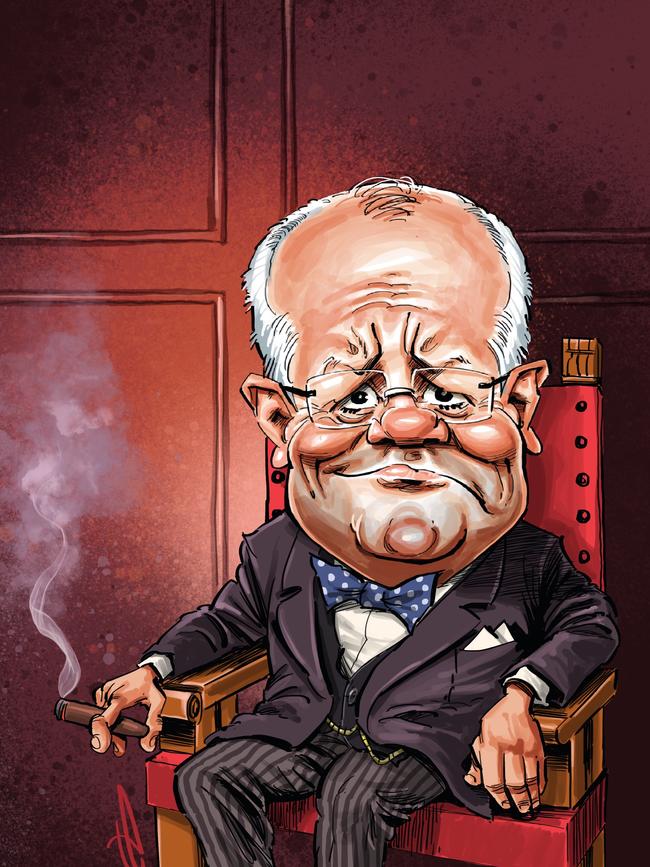
A few months later the Tories suffered one of their worst election defeats, losing to a socialist Labor party.
That’s the only way to understand it if the Coalition is defeated on Saturday: a triumph of emotion over reason.
But what Albanese is offering is not what Australians want, despite polls which show Labor heading to a thumping victory.
A lot of seats across the country are in play on both sides, in what is shaping up to be a spectacularly surprising election.
The one in five Australians still considered a “soft” or undecided vote must know how important this election is to their own futures and Australia’s prosperity. Their heart tells them one thing and their brain another.
But when Morrison went to a footy club in the outer suburban Melbourne electorate of Deakin last week and said that Australians “have had enough of governments telling them how to live their lives”, he got a rousing cheer and a few “hear hears”.
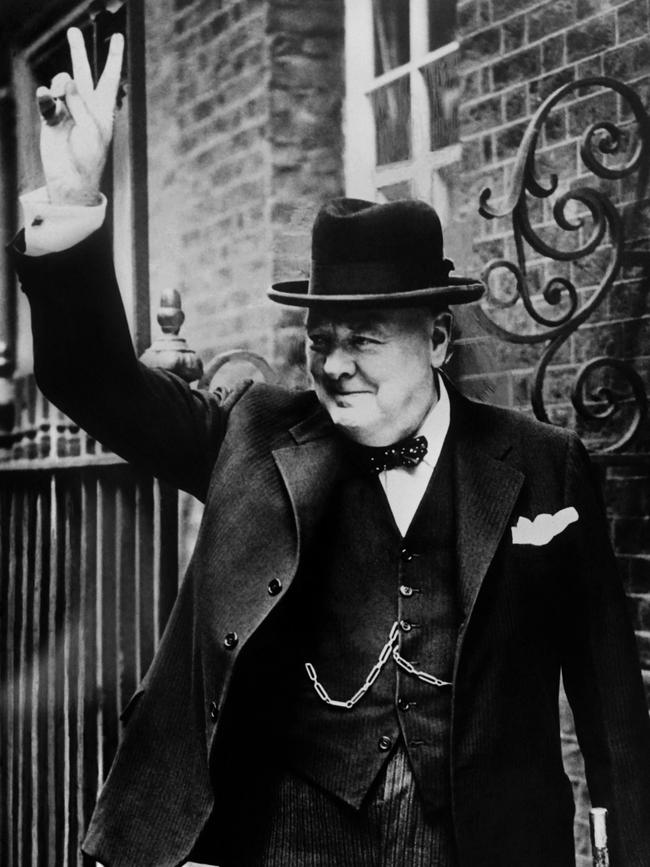
He wasn’t surprised. He sees it as the defining difference between himself and Albanese.
“I don’t see the government as the answer and he does,” he said in a reflective conversation on his RAAF plane on the weekend.
“He’s interested in the power of government, not the power of people and I think that’s the fundamental difference between the two of us.
“The question for Australians is where are they at on that choice. Where they are, I don’t know.”
There is an adage in politics, cited by Morrison’s strategists: you use reason to persuade and emotion to motivate.
So far Morrison has used facts and logic carefully to shape the election into a contest on his strengths – the economy. He has aimed to persuade voters that Albanese is a risk on that score, “a loose unit”.
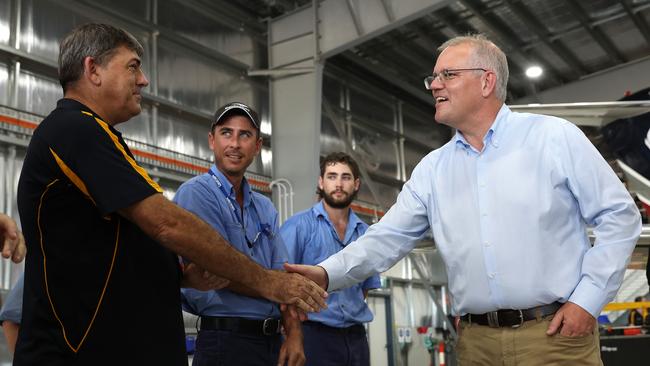
The Labor leader helped cement that narrative early in the campaign when he didn’t know the unemployment rate, the cash rate or details of his NDIS policy.
Morrison says he has used the campaign to frame Labor as a risk. “All of that has been landed. It’s not an election about aged care, climate change, schools and hospitals … all those things that are naturally Labor’s ground.
“We spent three years ensuring we were doing things in that space to ensure these issues were not things we’re talking about now — and we’re not.”
In this last week, Morrison wants to motivate Australians awake to the risks of Labor into voting for his government again.
“Having made the very strong case that the election is about the economy, that it’s a choice, not a referendum [on leaders] and Labor is a risk … now I have to bring home the upside of the deal of keeping us, not just the downside of the deal with getting them.”
He sees the election as a contest between two competing views of Australia.
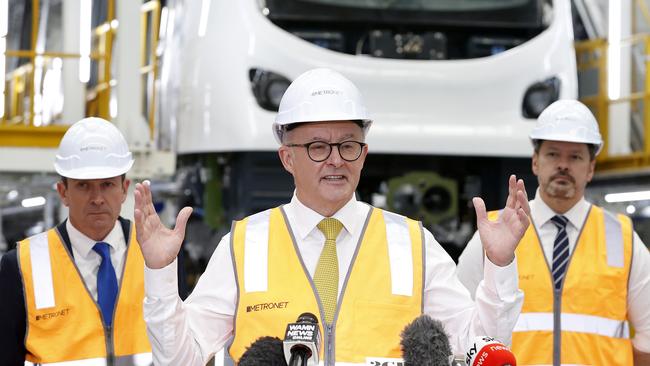
“The elites are focused on one set of issues [but] suburbanites, regional towns across Australia, they care about the stuff we’re talking about. There is quite a difference between those who think they can afford a Labor government that doesn’t know how to manage money, [and those who don’t].
“If you’ve got a mortgage out at Beveridge [in outer suburban Melbourne] that’s what matters most to you. That’s what is sharpening up in the last week.”
Around the world, the political left saw the pandemic as an opportunity to entrench socialism, or “Build Back Better” as Joe Biden’s massive stalled social welfare package is called in the US.
“They see this as an opportunity to [build] a very centralised government and programs,” says Morrison.
“No. We did what we had to do with the pandemic because we had to shut the whole economy down … and as a result government had to step in and keep everything going.
“But it’s time to get the hell out, time for you to get your life back. You’re in charge again, you’re back in the driver’s seat, you’re sick to death of state governments and everyone else telling you what to do.
“That’s the place we’re at, [we need to] get our confidence up, believe in ourselves, do what Australians have always done. It’s time to leave the shore.”
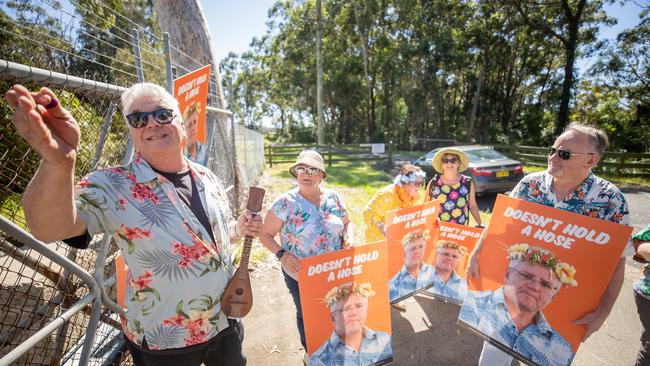
Having spent most of this term overseas, I don’t understand the antipathy to Morrison. He was effectively a wartime leader from March 2020 and was single-minded in his determination to save the country.
We should be grateful someone competent was in charge during the biggest crisis since WWII, who was focused on deeds rather than empty words.
Australia did better than any comparable advanced country through the pandemic, with the lowest fatality rates, the fastest economic recovery, and has one of the lowest inflation rates at a time of rising costs of living globally.
That doesn’t happen by accident.
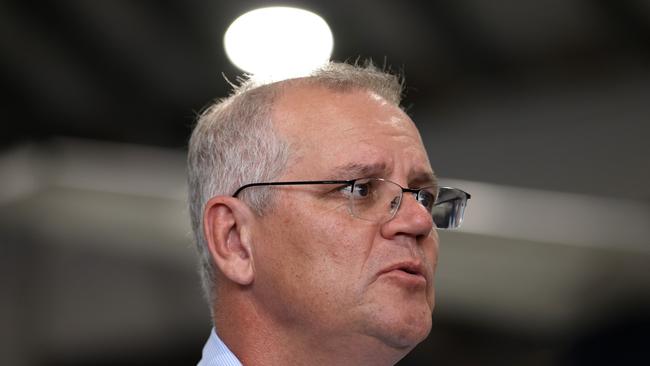
So, I asked Australian friends who don’t like Morrison: what did he do wrong?
They always cite two sins. First, he said procuring vaccines wasn’t a “race”. Fair enough, though he acknowledged his error and fixed it.
The second sin is that he went on holiday with his family in Hawaii during bushfires at home — back in 2019. How dare people begrudge a busy father a few days off with his wife and two small daughters.
Seriously, these are petty beefs considering the crises this country has weathered so well. It’s a luxury to nitpick in hindsight.
You just have to see the disasters Joe Biden has wrought in America after 16 months to see how fast an incompetent government can wreck your life.





